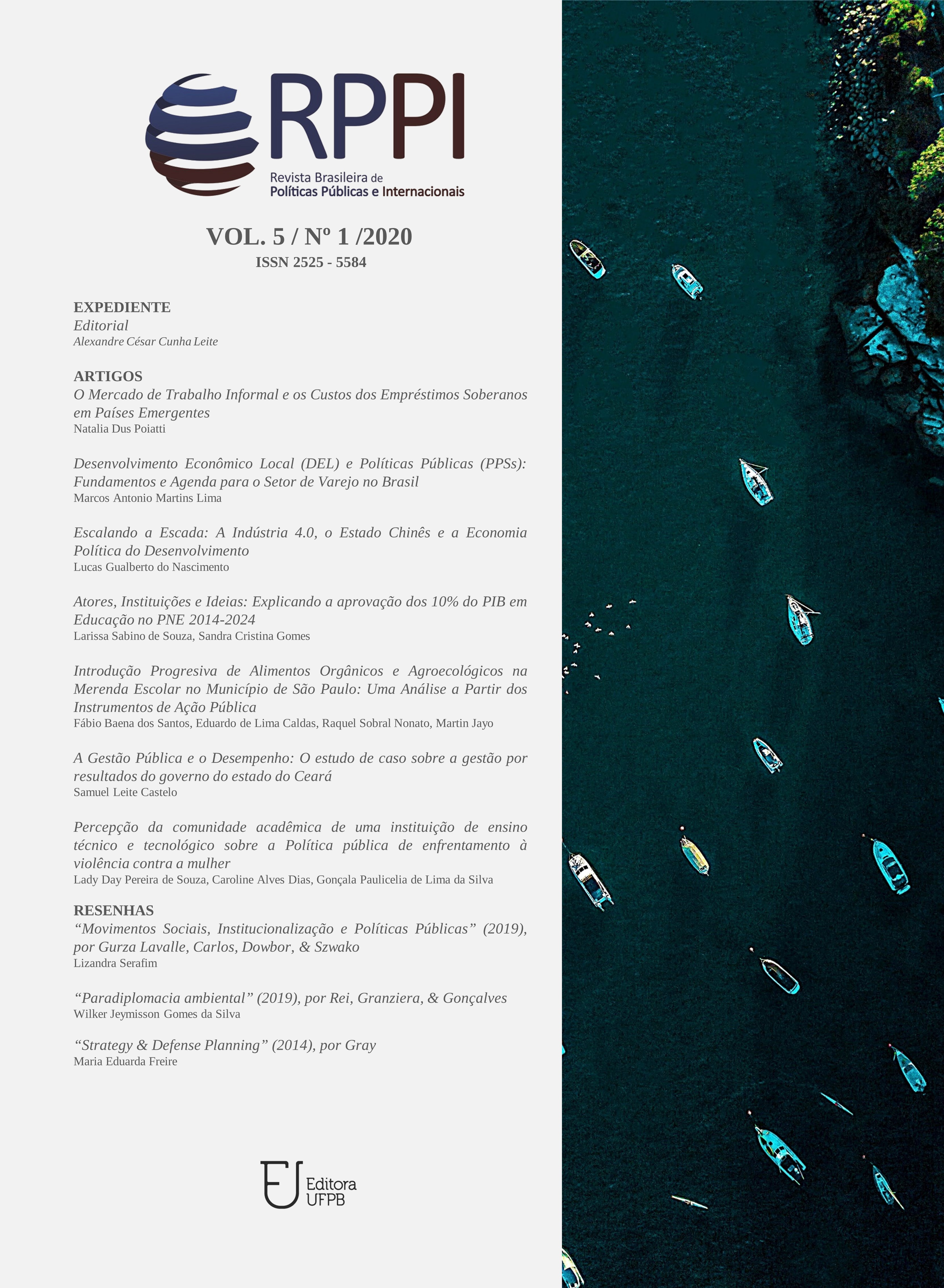Percepção da comunidade acadêmica de uma instituição de ensino técnico e tecnológico sobre a Política pública de enfrentamento à violência contra a mulher
DOI:
https://doi.org/10.22478/ufpb.2525-5584.2020v5n1.48791Keywords:
Violência contra a mulher, Desenvolvimento sustentável, Políticas PúblicasAbstract
Currently, much has been publicized and debated about the public policy to combat violence against women in various places of society, especially within technical and higher education institutions. Therefore, the article aims to know the perception of the academic community about public policies to combat violence against women, within a technical and technological education institution in Rondônia. The theoretical foundation is based on concepts of sustainable development and gender public policies related to facing violence against women. To this end, a questionnaire elaborated in the Google forms digital tool was applied, being sent to the academic community at random to verify the perception and knowledge about public policies to confront violence against women. The results indicated that 75% of respondents know about the Maria Penha Law, however, know little about it, of which 65% believe it protects little. Still, 85% said that violence against women alters the dynamics in social and regional development, and 88% realize that in the municipality of Porto Velho many cases of violence against women occur. Given the results of the research, it was found that the perceptions about the knowledge of details of the policy to confront violence against women are scarce, while the perception about the presence of violence against women in everyday life is manifest. Thus, it is recommended to promote more effective actions that reach society in general, starting from the intensification of debates within academic communities.
Downloads
Published
Issue
Section
License
Autores que publicam nesta revista concordam com os seguintes termos:- Autores mantém os direitos autorais e concedem à revista o direito de primeira publicação, com o trabalho simultaneamente licenciado sob a Licença Creative Commons Attribution que permite o compartilhamento do trabalho com reconhecimento da autoria e publicação inicial nesta revista.
- Autores têm autorização para assumir contratos adicionais separadamente, para distribuição não-exclusiva da versão do trabalho publicada nesta revista (ex.: publicar em repositório institucional ou como capítulo de livro), com reconhecimento de autoria e publicação inicial nesta revista.
- Autores têm permissão e são estimulados a publicar e distribuir seu trabalho online (ex.: em repositórios institucionais ou na sua página pessoal) a qualquer ponto antes ou durante o processo editorial, já que isso pode gerar alterações produtivas, bem como aumentar o impacto e a citação do trabalho publicado (Veja O Efeito do Acesso Livre).




_.jpg)






.png)


.jpg)
_.png)
